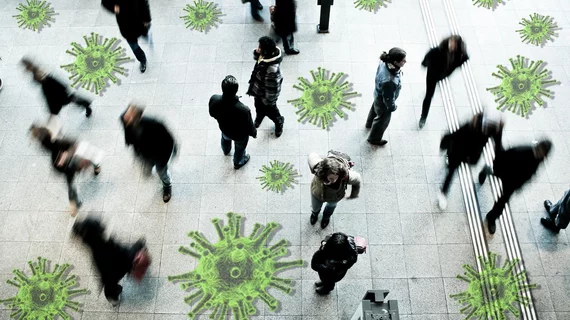Masking, social distancing ‘do not reduce and may enhance’ subjective well-being in the pandemic-wary
Regardless of effectiveness or lack thereof, pandemic-response measures like masking and social distancing give many people a sense of being better off with them than without them.
For these individuals, that’s not nothing.
Further, when a disease outbreak is afoot, participating in “shallow or medium-depth social activities”—dining out, going to a movie and the like—remains important to people’s sense of living a satisfying life.
Meanwhile deeper social interactions like get-togethers with family and close friends continue to register as important to people’s perceptions of finding meaning in life, which is related to but not the same as life satisfaction.
These are among the key findings from researchers who evaluated 831 U.S. adults for psychological well-being via questionnaire in October 2020. This was shortly after COVID-19 claimed its 1 millionth life worldwide. Along with pushes for vaccinations, mandates were in place for masking and social distancing.
Setting matters
The researchers had their findings published Sept. 25 in BMC Psychology [1].
Upon analyzing the completed responses, Matthew Tokson, JD, of the University of Utah and colleagues uncovered strong correlations between COVID-preventive behaviors and subjective well-being.
Specifically, they report, wearing a mask was significantly associated with higher life satisfaction, while maintaining social distancing of six feet and avoiding large groups were significantly associated with higher perceived meaning in life.
The findings suggest these measures, when applied situationally according to degree of social interaction, “do not reduce, and may enhance, subjective well-being during a pandemic.”
Asking questions obviates overdoing prevention
Tokson and co-authors did not separate healthcare-specific settings from sites of more general social contact.
They also did not look at potentially deleterious developmental effects of masking and social distancing on children, a subject of no small controversy.
However, Tokson et al. offer that authorities overseeing any social setting during a pandemic could adapt their questionnaire to ascertain local communities’ sense of subjective well-being.
More:
“Such measures could help to gauge the psychological health of a population in real time and uncover the direction and strength of relationships between public health measures and subjective well-being. By accurately measuring the psychological effects of disease-preventive measures, authorities may be able to determine when such measures become counterproductive, or when compliance with legal mandates or non-mandatory public health guidance is likely to decline.”
Tokson’s co-authors were psychologists Jeffrey Green, PhD, and Hadley Rahrig, PhD, both of Virginia Commonwealth University.
The study is posted in full for free.

